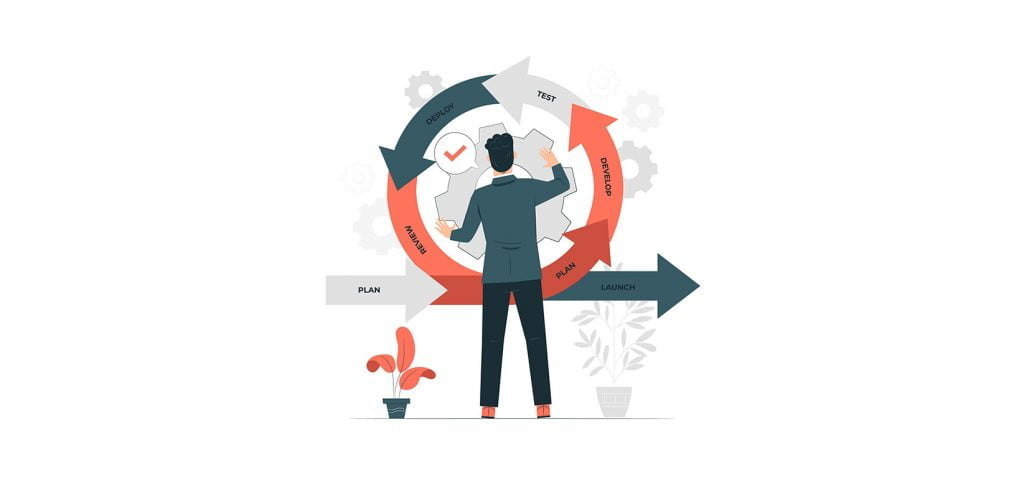Как правильно выбрать IT-профессию

Приветствую, будущие кодеры и великие создатели мира 0 и 1! Если вы начали читать эту статью, значит пришло время определиться с направлением, к которому у вас больше всего тянет душа, где можно развернуться в полную силу и чувствовать себя как рыба в воде. Пристегните ремни, мы начинаем путешествие по миру IT-специализаций.
Цель статьи – не просто показать вам разные профессии, а дать понимание, что стоит за каждой из них, чтобы помочь вам определиться, куда двигаться дальше. Выбор правильной специальности – это ключ к успешной карьере в IT. Именно поэтому выбор должен быть взвешенным.
Что такое IT-специализация
IT-специализация/специальность/профессия – это конкретная область в индустрии информационных технологий, с которой вы хотите связать свою карьеру. Это может быть все, начиная от разработки веб-сайтов (front-end), заканчивая искусственным интеллектом (AI) и машинным обучением (ML).
Выбор правильной профессии позволит вам не только достигать успеха в карьере, но и наслаждаться каждым днем работы, потому что вы будете заниматься тем, что действительно вам нравится. К тому же, при правильном выборе у вас будет больше шансов выделяться среди конкурентов на рынке труда и получать достойную оплату за свой труд.
Популярные IT-профессии
1. Front-end разработка
Front-end – это часть айсберга, которую видят пользователи. Ваши задачи? Создавать интерактивные и привлекательные интерфейсы, тщательно тестировать их и обеспечивать бесперебойную работу на различных устройствах и браузерах.
2. Back-end разработка
В back-end вы будете работать над серверной частью веб-приложений, управлять базами данных, а также обеспечивать взаимодействие между серверной и клиентской сторонами. Ваши навыки будут прямо влиять на то, насколько эффективно и безопасно будут работать веб-сайты.
3. Full-stack разработка
Этот вариант для тех, кто любит держать все в своих руках. Здесь вы будете работать как на front-end, так и на back-end части проекта. Помимо гибкости, вы получите широкий кругозор и глубокое понимание веб-разработки.
4. Мобильная разработка
Если ваше сердце замирает при виде мобильных приложений, может быть, это ваше? Выбирайте между iOS и Android (или обоими) и делайте мобильные устройства еще лучше с помощью новых приложений.
5. QA-тестирование
Если вы обладаете орлиным глазом и всегда замечаете баги, возможно, QA-тестирование – ваша стезя. Вы будете отвечать за качество продукта и станете первой линией обороны от ошибок и сбоев.
6. Data Science
Любите анализировать и находить закономерности в больших массивах данных? В Data Science вы сможете применить свои аналитические способности и помочь компаниям принимать обоснованные решения на основе данных.
7. Бизнес и системная аналитика
Эта специализация для тех, кто хочет быть мостом между бизнесом и IT. Ваши задачи будут включать в себя анализ бизнес-процессов, формирование требований к IT-системам и контроль их реализации.
8. Искусственный интеллект (AI) и машинное обучение (ML)
Если вы хотите стать частью передовой технологии и внести свой вклад в создание «умных» машин, AI и ML станут вашими верными спутниками. Это направление требует глубокого понимания математики, статистики и алгоритмов, но взамен дает широкие возможности для инноваций.
9. Cybersecurity
Нравится играть в «хорошего полицейского» в мире данных? Cybersecurity — это направление, где ваши навыки будут направлены на защиту систем от кибератак, устранение уязвимостей и обеспечение безопасности информации.
10. DevOps
DevOps-инженеры — это «клей», который связывает разработку и эксплуатацию. Вы будете работать над автоматизацией и оптимизацией процессов развертывания, обновления и мониторинга ПО.
Сравнительный анализ специализаций
Таблица сравнения основных характеристик специализаций
Давайте посмотрим, как разные специализации сравниваются между собой по ключевым параметрам.
| Специализация | Заработная плата | Трудоемкость | Сложность изучения |
|---|---|---|---|
| Front-end | 💲💲💲 | 🧠🧠 | 📚📚 |
| Back-end | 💲💲💲 | 🧠🧠🧠 | 📚📚📚 |
| Full-stack | 💲💲💲💲 | 🧠🧠🧠 | 📚📚📚 |
| Мобильная разработка | 💲💲💲 | 🧠🧠 | 📚📚 |
| QA-тестирование | 💲💲 | 🧠 | 📚 |
| Data Science | 💲💲💲💲 | 🧠🧠🧠 | 📚📚📚 |
| Бизнес и системная аналитика | 💲💲💲 | 🧠🧠 | 📚📚 |
| AI и ML | 💲💲💲💲💲 | 🧠🧠🧠 | 📚📚📚 |
| Cybersecurity | 💲💲💲💲 | 🧠🧠🧠 | 📚📚📚 |
| DevOps | 💲💲💲💲 | 🧠🧠🧠 | 📚📚📚 |
*Пожалуйста, обратите внимание, что эти данные являются приблизительными и могут варьироваться в зависимости от многих факторов, включая ваш уровень опыта, географию и компанию, в которой вы работаете.
Востребованность
Важно понимать, что востребованность различных IT-специализаций может значительно варьироваться в разных странах и отраслях. Например, специалисты по AI и ML будут особенно востребованы в отраслях, активно использующих передовые технологии, таких как автомобильная промышленность, финансовые технологии и здравоохранение.
Front-end и back-end разработчики, как правило, востребованы во всех отраслях, так как любая компания, имеющая веб-сайт или веб-приложение, нуждается в их услугах. Однако, стоит учесть, что определенные технологии могут быть более популярны в определенных регионах. Например, .NET широко используется в корпоративном секторе США, в то время как Ruby on Rails может быть более популярным среди стартапов в Европе.
Как оценить свои интересы и навыки
1. Важность личного интереса и предпочтений
Выбор IT-специализации — это не только профессиональный выбор, но и личный. Вы должны быть готовы уделять время и энергию изучению и совершенствованию своих навыков в выбранной области, поэтому важно, чтобы она вас заинтересовала и вдохновляла. Задайте себе вопрос: «Что мне больше всего нравится в IT? Чем я бы хотел заниматься на протяжении многих лет?»
2. Самооценка навыков и знаний
Проанализируйте свои текущие навыки и знания. Вам может подойти профессия, которая требует навыков, которые у вас уже есть, или которые вы можете освоить без особых усилий. Например, если вы хорошо знаете математику, специализации, связанные с анализом данных, могут стать хорошим выбором.
3. Пробное обучение и тестовые проекты
Прежде чем принять окончательное решение, попробуйте «попробовать на вкус» несколько разных направлений. Запишитесь на бесплатные онлайн-курсы, прочитайте базовые книги, попробуйте создать небольшие проекты. Это поможет вам понять, какие области вам больше всего нравятся и в которых вы себя комфортно чувствуете.
Понимание рынка труда и будущих тенденций
1. Анализ текущего состояния рынка
При выборе профессии важно оценить текущую обстановку на рынке труда. Какие IT-специалисты сейчас в наибольшем спросе? Какие технологии особенно востребованы? Что предлагают работодатели в вакансиях? Информация о текущем состоянии рынка поможет вам сделать более обоснованный выбор. Используйте раздел вакансий, чтобы проанализировать рынок.
2. Прогнозирование будущих трендов IT-индустрии
С другой стороны, важно не только учитывать текущую обстановку, но и оценивать будущие тенденции. Какие технологии и специализации, вероятно, станут более востребованными в ближайшие годы? Исследования и прогнозы известных IT-компаний и аналитиков могут помочь вам оценить потенциальные тренды. Узнайте про 10 самых востребованных профессиях в этой статье.
3. Оценка потенциала роста и зарплат
Разумеется, важно также учесть перспективы карьерного роста и потенциал зарплаты в различных IT-специализациях. Как правило, в профессиях, требующих более глубоких знаний и навыков (например, AI, Data Science), зарплаты будут выше. Однако, такие специальности также требуют большего вложения времени и усилий в обучение и развитие.
Обучение
Независимо от выбранной вами специализации, хорошее образование будет вашим преимуществом. В некоторых направлениях (например, AI и Data Science) образование в области математики или статистики может быть особенно полезным. Тем не менее, существует множество онлайн-курсов, которые могут помочь вам освоить нужные навыки и знания.
Важность самообразования в IT не может быть переоценена. Вам следует постоянно следить за новыми технологиями, методами и практиками, что было бы невозможно без активного самообразования. Чтение книг, просмотр обучающих видео, участие в форумах и группах в социальных сетях — все это поможет вам быть в курсе последних тенденций и развивать свои навыки.
Заглядывайте в раздел IT-образования в GeekLink для подбора подходящих курсов по категориям, рекомендациям и стоимости.
Практика и стажировки — это еще один отличный способ получить реальный опыт работы в выбранной специализации. Даже если у вас нет возможности получить оплачиваемую позицию, проекты с открытым исходным кодом могут быть очень полезными.
Наконец, сетевое взаимодействие и менторство могут существенно помочь в изучении новой специализации. Взаимодействие с другими профессионалами в IT и нахождение ментора позволят вам избежать распространенных ошибок, получить полезные советы и направления для дальнейшего развития.
Подводные камни при выборе IT-профессии
Никто не говорил, что выбор IT-направления будет легким, и есть несколько важных моментов, о которых следует помнить, прежде чем вы окончательно определитесь.
Частые ошибки при выборе
Одним из наиболее распространенных заблуждений является выбор специальности только на основе текущего тренда или потенциального дохода. Но давайте будем честными: если у вас нет страсти к тому, что вы делаете, скорее всего, ваши усилия приведут к умеренному успеху.
Ваш интерес и навыки в выбранной области играют критически важную роль в том, как эффективно вы сможете освоить новую профессию и насколько будете удовлетворены своей работой в долгосрочной перспективе.
Сложности при обучении
Стоит сказать, что независимо от выбранной специализации, вас ждут некоторые трудности. Новые концепции, технологии, проблемы и решения — все это может быть сложным для понимания и освоения, особенно в начале пути.
Однако не пугайтесь, на это необходимо время. С терпением и упорством вы сможете преодолеть все препятствия.
Устаревание навыков и необходимость непрерывного обучения
Технологии меняются буквально каждый день, и то, что сегодня актуально, завтра уже может стать устаревшим. Поэтому важно всегда быть в курсе новинок, постоянно обучаться и развивать свои навыки, чтобы быть всегда в тренде и оставаться конкурентоспособным на рынке труда.
Заключение
Итак, вы знаете о возможностях, вы знаете о подводных камнях, и вы готовы принять этот вызов. Что дальше?
Не бойтесь экспериментировать. Существуют различные способы погрузиться в ту или иную область, прежде чем принять окончательное решение. Пройдите онлайн-курсы, прочитайте пару книг, создайте несколько небольших проектов в выбранной области. Попробуйте несколько направлений, прежде чем окончательно погрузиться в одно из них.
Во-вторых, сетевое взаимодействие важно. Общайтесь со специалистами в выбранной области, задавайте вопросы, участвуйте в мероприятиях, устанавливайте контакты. Это может быть очень полезно для ускорения вашего обучения и увеличения возможностей в будущем.
В-третьих, всегда продолжайте обучение. Вам нужно быть готовыми к непрерывному обучению и адаптации к новым технологиям и трендам.
Завершающие замечания и мысли
Выбор специализации в IT — это инвестиция в ваше будущее, и это решение требует обдумывания и исследования. Но помните, что выбор — это только начало пути. Главное — это то, что вы делаете после выбора. Учите, растите, развивайтесь и становитесь экспертом в выбранной области.
Удачи вам на этом пути, и не забудьте наслаждаться процессом!






 , а затем
, а затем
Комментарии